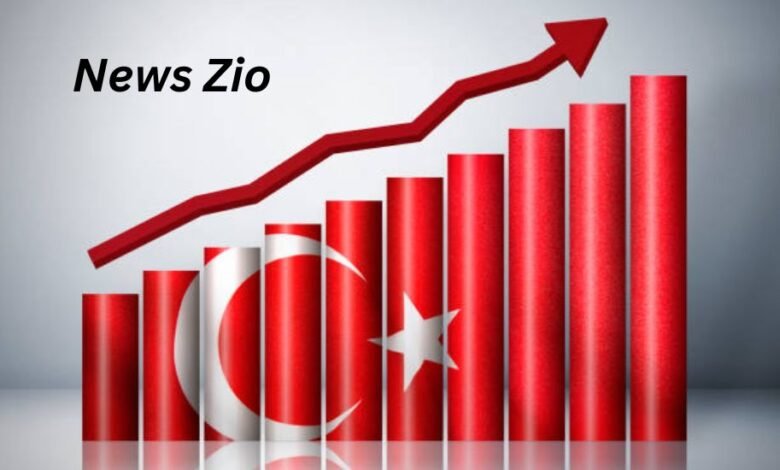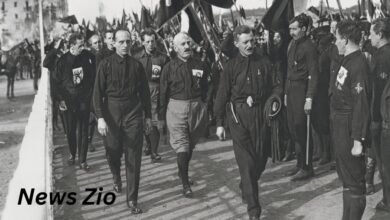Türk Idla: Meaning, Heritage, and Modern Identity

Across cultures, certain terms emerge that capture not just the spirit of a people but also the intersection of their past and present. In recent weeks, a new expression has begun surfacing in blog conversations, lifestyle articles, and cultural commentaries: “Türk Idla.” While its exact origins are still debated, its rising use reflects an important undercurrent in Turkey’s evolving cultural narrative. Far more than a linguistic curiosity, Türk Idla is being framed as a philosophy of identity, leadership, and aspiration for Turks both at home and across the diaspora.
This article explores the meaning, context, and resonance of Türk Idla—a term that, though young in appearance, is already finding traction as a symbol of cultural connection, philosophical reflection, and creative modern identity.
The Enigma of the Term “Türk Idla”
The phrase “Türk Idla” does not appear in official dictionaries such as the Türk Dil Kurumu (TDK) listings, nor is it found in long-standing academic or linguistic references. This absence highlights one important fact: Türk Idla is not a traditional word in the Turkish lexicon. Instead, it has emerged as a conceptual or blog-driven term, promoted in cultural and opinion pieces.
Despite this, the word has gained momentum as writers attach meaning to it, often linking it with heritage, leadership, and aspiration. In this way, Türk Idla functions as a neologism—a new expression that captures a spirit rather than a fixed definition.
Cultural Identity and Heritage
One of the most common themes associated with Türk Idla is its connection to cultural identity and heritage. Blog writers describe it as a “hidden gem” of Turkish culture, a thread that ties together traditions, ceremonies, oral storytelling, and ancestral wisdom. It is presented as a guiding light, helping Turks reconnect with the values of their past while embracing the challenges of the present.
For many, this resonates with Turkey’s broader narrative: a nation with deep historical roots that span the Ottoman Empire, Central Asian Turkic tribes, and Anatolian civilizations. Türk Idla embodies this continuity of memory—a reminder that culture is not static but alive, breathing through the lives of individuals and communities.
Leadership and Integrity
Another layer of meaning attached to Türk Idla is the idea of leadership with integrity. In this framing, the word transcends personal identity to describe a philosophy of action. It suggests that Turkish identity is not only about belonging but also about leading with principles, resilience, and honor.
Writers highlight how the concept can inspire not just individuals but also communities, particularly as Turkey positions itself on the global stage. Whether in business, politics, or creative industries, Türk Idla represents a model of leadership rooted in cultural authenticity.
Aspirations in the Modern Era
In addition to heritage and leadership, Türk Idla is frequently linked with aspiration and modern relevance. Blogs describe it as a philosophy of striving—“a way of honoring the past while empowering the present and future.” For younger generations, particularly those in the diaspora, this aspirational element has special weight.
Diaspora communities often face the challenge of balancing integration into host societies with preserving cultural roots. Türk Idla is presented as a lifeline—a philosophy that allows individuals to remain connected to Turkish traditions without losing their adaptability in modern global environments.
Diaspora and Global Identity
For Turks living abroad, Türk Idla is framed as both a compass and a bridge. It acts as a compass by grounding identity in shared cultural values, and as a bridge by enabling dialogue with other cultures. In a globalized world, where identities can feel fragmented, the idea of Türk Idla gives diaspora Turks a framework of continuity.
This emphasis is significant: cultural survival abroad often depends on symbols and philosophies that can travel across borders. Just as Irish diaspora communities embrace Celtic traditions or Indian diaspora groups uphold festivals like Diwali, Turks abroad may use Türk Idla as a unifying term that keeps heritage alive in diverse contexts.
The Modern Creative Sphere
Interestingly, discussions of Türk Idla are not confined to philosophy alone. Some blogs tie the concept to modern creative industries: branding, digital storytelling, cultural festivals, and artistic innovation. This points to a potential evolution of the term from abstract philosophy to tangible cultural branding.
Turkey has already seen its cuisine, cinema, music, and fashion gain international attention. By linking Türk Idla to these fields, creators may be attempting to market Turkish identity in a way that appeals to global audiences while maintaining authenticity.
A Philosophy More Than a Word
Perhaps the most important takeaway is that Türk Idla functions less as a dictionary entry and more as a philosophy or movement. It is not about rigid definitions but about values, practices, and aspirations. By using a neologism, writers have created space for interpretation and re-interpretation, allowing individuals to find personal meaning in the term.
This flexibility may be one reason for its fast spread. In an era where digital platforms can amplify new concepts within weeks, Türk Idla demonstrates how language evolves online, shaped not only by linguists but by writers, bloggers, and communities.
Critical Perspectives
Of course, not all observers are convinced. Some critics note that the lack of historical foundation makes Türk Idla less credible than traditional cultural terms. Others see it as a buzzword—an SEO-driven phrase meant more to attract readers than to carry deep cultural substance.
This raises an important question: does it matter if Türk Idla is a newly coined term? The answer depends on perspective. From a linguistic standpoint, the absence of Idla in traditional references makes it unconventional. But from a cultural standpoint, the meaning assigned by communities and writers may be more significant than etymology.
The Power of Emerging Cultural Symbols
What Türk Idla illustrates is the power of emerging cultural symbols. Even without centuries of usage, a term can become meaningful if it resonates with people’s lived experiences. In this sense, Türk Idla is less about linguistic legitimacy and more about cultural energy.
As Turkish culture continues to evolve in dialogue with globalization, terms like Türk Idla may serve as anchors of belonging, tools of storytelling, and markers of pride. Whether it endures or fades will depend on how communities continue to adopt, adapt, and live out its principles.
Conclusion
Türk Idla is a fascinating case of a newly emerging cultural concept that combines heritage, leadership, and aspiration into one phrase. Though absent from dictionaries and academic references, it has already begun shaping conversations in blogs and cultural discussions. Whether as a philosophy of living, a symbol of diaspora resilience, or a tool for creative branding, it reflects the dynamic ways in which identity is re-imagined in the modern world.
For readers, the message is simple: Türk Idla is not just about what it means linguistically but about what it represents emotionally and culturally. It is about continuity, pride, and the courage to bridge tradition with modernity.
And as this concept gains traction, voices like yours and platforms like News Zio will continue to shape how global audiences understand and engage with the evolving story of Turkish identity.
For more information visit News Zio .



